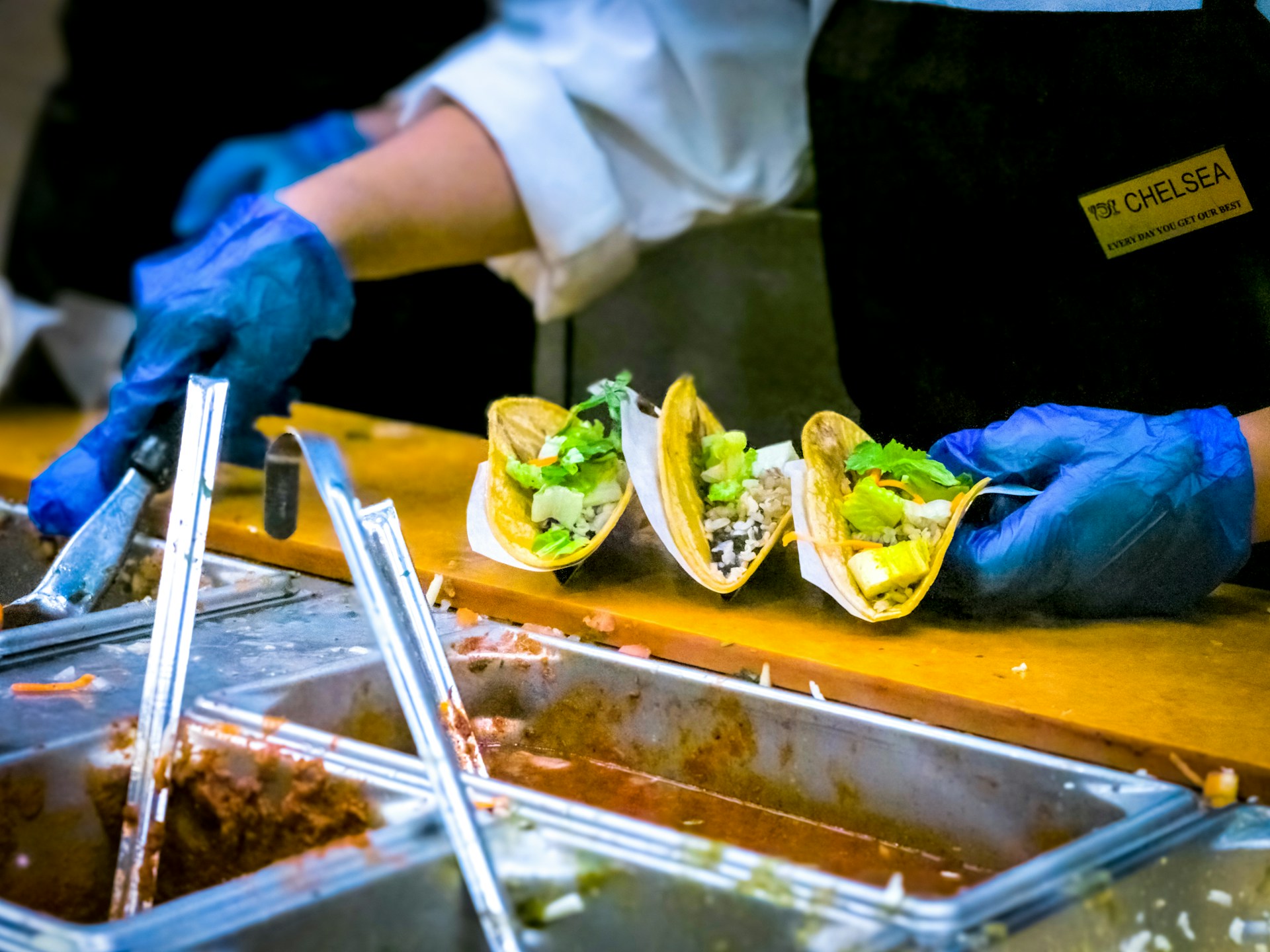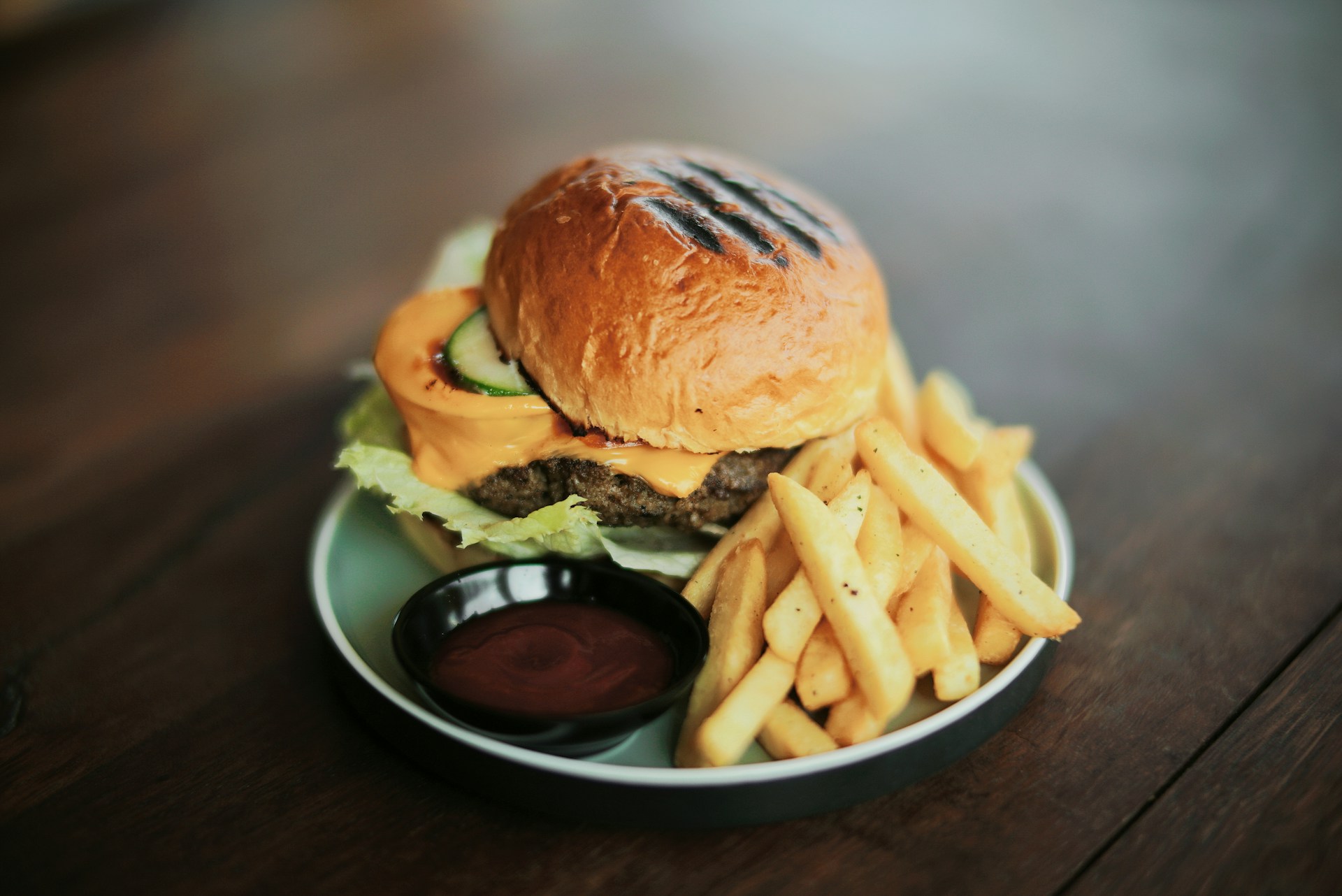The Association Between Food Safety Knowledge and Attitude with Optimistic Bias among Food Handlers in Senior High School Canteens in Magelang City, Indonesia
Hubungan Antara Pengetahuan dan Sikap Keamanan Pangan dengan Bias Optimis pada Penjamah Makanan di Kantin SMA Negeri di Kota Magelang, Indonesia

Downloads
Background: Foodborne diseases are a significant global concern, with food available in educational institutions being a common source of food poisoning in Indonesia. The lack of attention to hygiene and sanitation by food handlers is a key factor, often influenced by optimistic bias, resulting in insufficient focus on proper food processing and serving procedures.
Objectives: To examine the correlation between food safety knowledge and attitudes with optimistic bias in food handlers in five State High Schools canteens, Magelang City.
Methods: This cross sectional study included a total of 41 food handlers who work at the canteens of five State High School, Magelang City. The independent variables were food safety knowledge and attitudes, while the dependent variable was optimistic bias. The categories of food safety knowledge variable consist of good and poor food safety knowledge. Food safety attitudes was categorized as positive attitudes and negative attitudes. The categories of variable optimistic bias consist of high, possible, and low optimistic bias. The Spearman correlation test was conducted.
Results: The results of the correlation test between food safety knowledge and attitudes with optimistic bias among food handlers in five State High School canteens, Magelang City showed p-value= 0,704 and 0,498.
Conclusions: Food safety knowledge and attitudes are not significantly correlated with optimistic bias among food handlers in five State High School canteens, Magelang City. Food safety training supervised by public health office is needed to improve the quality of service.
BPOM (Badan Pengawas Obat dan Makanan). Laporan Tahunan 2016. (2017).
BBPOM (Balai Besar Pengawas Obat dan Makanan). Laporan Tahunan 2022 Balai Besar POM di Semarang. (2022).
Irfandi, A., Veronika, E., Azteria, V. & Simatupang, M.M. Studi Deskriptif Kondisi Hygiene dan Sanitasi Kantin di Universitas Esa Unggul. JCA of Health Science.2, 53-58 (2022).
Paratmanitya, Y. & Aprilia, V. Kandungan Bahan Tambahan Pangan Berbahaya pada Makanan Jajanan Anak Sekolah Dasar di Kabupaten Bantul. Jurnal Gizi dan Dietetik Indonesia (Indonesian Journal of Nutrition and Dietetics). 4, 49-55 (2016) doi:https://doi.org/10.21927/ijnd.2016.4(1).49-55.
Siagian, A. Mikroba Patogen pada Makanan dan Sumber Pencemarannya. (Universitas Sumatera Utara, 2002).
Sya’baniah, S. I., Saryono, O. & Herlina E. Pengaruh sikap dan kepribadian terhadap kinerja pegawai. Business Management and Entrepreneurship Journal, 1, 162-177 (2019).
Husaini, N. A. L., Mariani, Artanti, G. D. Hubungan pengetahuan tentang sanitasi higiene dengan sikap penjamah makanan di kawasan kuliner taman jajan. Jurnal Socia Akademika. 8, 7-15 (2022).
Pacholewicz, E., Barus, S.A.S., Swart, A., Havelaar, A.H., Lipman, L.J.A, & Luning, P.A. Influence of food handlers' compliance with procedures of poultry carcasses contamination: A case study concerning evisceration in broiler slaughterhouses. Food Control. 68, 367-378 (2016) doi:https://doi.org/10.1016/j.foodcont.2016.04.009.
da Cunha, D.T., Braga, A.R.C., Passos, E.C., Stedefeldt, E. & de Rosso, V.V. The existence of optimistic bias about foodborne disease by food handlers and its association with training participation and food safety performance. Food Research International. 75, 27-33 (2015) doi:https://doi.org/10.1016/j.foodres.2015.05.035.
Irawan, D.W.P. Prinsip-Prinsip Hygiene Sanitasi Makanan Minuman di Rumah Sakit. (Forum Ilmiah Kesehatan, 2016).
Rossi, M. de S. C., Stedefeldt, E., da Cunha, D. T. & de Rosso, V. V. Food safety knowledge, optimistic bias and risk perception among food handlers in institutional food services. Food Control 73, 681–688 (2017) doi:https://doi.org/10.1016/j.foodcont.2016.09.016.
Aschemann-Witzel, J., & Grunert, K. G. Influence of “soft” versus “scientific” health information framing and contradictory information on consumers' health inferences and attitudes towards a food supplement. Food Quality and Preference. 42, 90–99 (2015) doi:https://doi.org/10.1016/j.foodqual.2015.01.008.
da Cunha, D. T., Stedefeldt, E. & de Rosso, V. V. He is worse than I am: The positive outlook of food handlers about foodborne disease. Food Qual Prefer 35, 95–97 (2014) doi:https://doi.org/10.1016/j.foodqual.2014.02.009.
BPOM (Badan Pengawas Obat dan Makanan). Laporan Tahunan 2019. (2019).
Garaika & Darmanah. Metodologi penelitian. (CV. Hira Tech, 2019).
Sekarsari, K.A. 2024. Hubungan Pengetahuan Keamanan Pangan dengan Bias Optimis Pada Penjamah Makanan Di Kantin SMA Negeri Kota Magelang. Skripsi Universitas Gadjah Mada, Yogyakarta.
Khoirunisa’, A. 2024. Hubungan Bias Optimis dengan Sikap Higiene Dan Sanitasi Pada Penjamah Makanan Di Kantin SMA Negeri Kota Magelang. Skripsi Universitas Gadjah Mada, Yogyakarta.
Taha, S., Osaili, T.M., Saddal, N.K., Al-Nabulsi, A.A., Ayyash, M.M. & Obaid, R.S. Food Safety Knowledge Among Food Handlers in Food Service Establishments in United Arab Emirates. Food Control. 110, 106968 (2020) doi:https://doi.org/10.1016/j.foodcont.2019.106968.
de Andrade, M. L., Rodrigues, R. R., Antongiovanni, N. & da Cunha, D. T. Knowledge and risk perceptions of foodborne disease by consumers and food handlers at restaurants with different food safety profiles. Food Research International 121, 845–853 (2019) doi:https://doi.org/10.1016/j.foodres.2019.01.006.
Ahmed, M.H., Akbar, A.& Sadiq, M.B. Cross Sectional Study on Food Safety Knowledge, Attitudes, and Practices of Food Handlers in Lahore District, Pakistan. Heliyon. 7, 2-7 (2021) doi:https://doi.org/10.1016/j.heliyon.2021.e08420.
Pasanda, Amalia. Perbedaan Pengetahuan, Sikap dan Perilaku Penjamah Makanan Sesudah Diberikan Penyuluhan Personal Higiene di Hotel Patra Jasa Semarang. (Universitas Muhammadiyah Semarang, 2016).
Webb, M., & Morancie, A. Food safety knowledge of foodservice workers at a university campus by education level, experience, and food safety training. Food Control. 50, 259-264 (2015) doi:https://doi.org/10.1016/j.foodcont.2014.09.002.
Maghafirah, M., Sukismanto & Rahmuniyati, M. E. Hubungan pengetahuan dan sikap dengan praktik higiene sanitasi penjamah makanan di sepanjang Jalan Raya Tajem Maguwoharjo Yogyakarta Tahun 2017. Jurnal Formil (Forum Ilmiah) KesMas Respati. 3, 15-22 (2018).
Firdauzia, Mutyari N. & Handajani, S. Analisis faktor intern dan ekstern terhadap praktik higiene sanitasi penjamah makanan di dapur Instalasi Gizi Rumah Sakit Dr Darsono Pacitan. Jurnal Tata Boga, 8, 236-243 (2019).
Avrilinda, S. M. Pengaruh pengetahuan dan sikap terhadap perilaku higiene penjamah makanan di kantin SMA Muhammadiyah 2 Surabaya. E-Journal Boga. 5, 1-7 (2016)
Al-Shabib, N.A., Mosilhey, S.H. & Husain, F.M. Cross-sectional study on food safety knowledge, attitude and practices of male food handlers employed in restaurants of King Saud University, Saudi Arabia. Food Control. 59, 212-217 (2016) doi:https://doi.org/10.1016/j.foodcont.2015.05.002.
Permatasari, I., Handajani, S., Sulandjari, S. & Faidah, M. Faktor perilaku higiene sanitasi makanan pada penjamah makanan pedagang kaki lima. Jurnal Tata Boga. 10, 223-233 (2021).
Notoatmodjo, S. Metodologi penelitian kesehatan. (Rineka Cipta, 2014).
Samapundo, S., Thanh, T.N.C., Xhaferi, R., & Devlieghere, F. Food safety knowledge, attitudes and practices of street food vendors and consumers in Ho Chi Minh City, Vietnam. Food Control. 70, 79-89 (2016) doi:https://doi.org/10.1016/j.foodcont.2016.05.037.
Mustofa, F.L., Husna, I., Anggraini, M. & Putra, R.A. Hubungan tingkat pengetahuan dan sikap masyarakat terhadap kepatuhan penerapan 3M dalam rangka pencegahan Covid-19 di RT 11 RW 12 Jatinegara Jakarta Timur. Jurnal Medika Malahayati. 5, 102-108 (2021) doi:https://doi.org/10.33024/jmm.v5i2.4105.
Dudeja, L.C.P., Singh, A., Sahni, N., Kaur, S., & Goel, S. Effectiveness of an intervention package on knowledge, attitude, and practices of food handlers in a tertiary care hospital of north India: A before and after comparison study. Medical Journal Armed Forces India. 73, 49–53 (2017) doi:https://doi.org/10.1016/j.mjafi.2016.10.002.
Wulandari, D., Heryana, A., Silviana, I., Puspita, E., Rini, H. & Deasy, F. Faktor–faktor yang berhubungan dengan persepsi tenaga kesehatan terhadap vaksin covid-19 di Puskesmas X tahun 2020. Jurnal Kesehatan Masyarakat, 9, 660-668 (2021) doi:https://doi.org/10.14710/jkm.v9i5.30691.
Copyright (c) 2025 Amerta Nutrition

This work is licensed under a Creative Commons Attribution-ShareAlike 4.0 International License.
AMERTA NUTR by Unair is licensed under a Creative Commons Attribution-ShareAlike 4.0 International License.
1. The journal allows the author to hold the copyright of the article without restrictions.
2. The journal allows the author(s) to retain publishing rights without restrictions
3. The legal formal aspect of journal publication accessibility refers to Creative Commons Attribution Share-Alike (CC BY-SA).
4. The Creative Commons Attribution Share-Alike (CC BY-SA) license allows re-distribution and re-use of a licensed work on the conditions that the creator is appropriately credited and that any derivative work is made available under "the same, similar or a compatible license”. Other than the conditions mentioned above, the editorial board is not responsible for copyright violation.












































